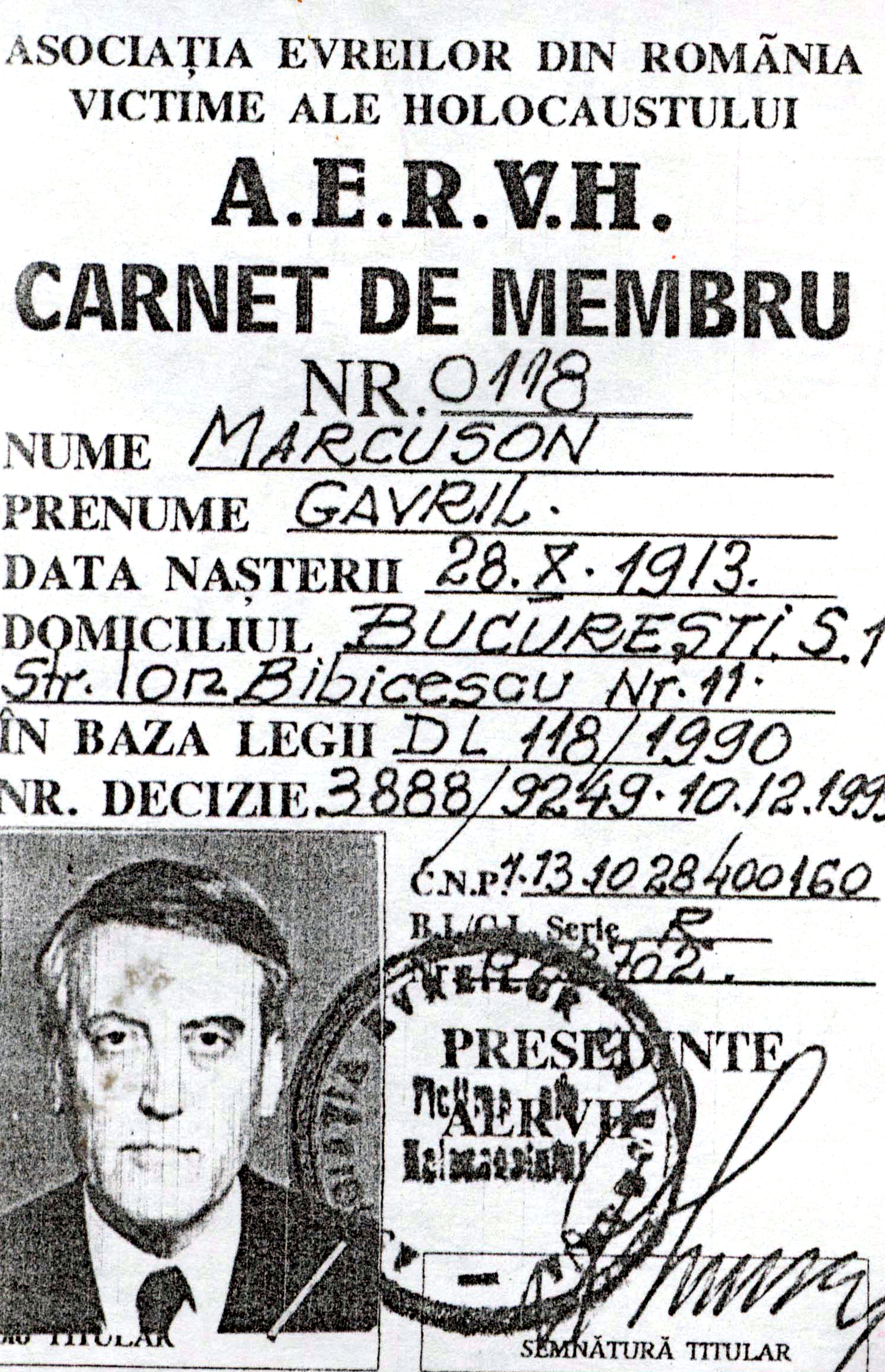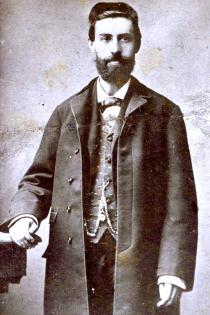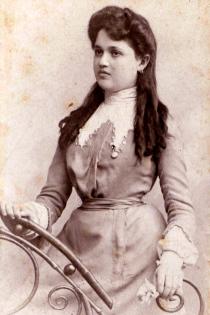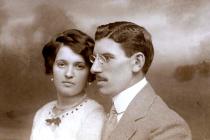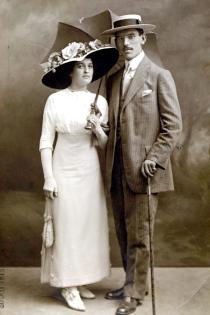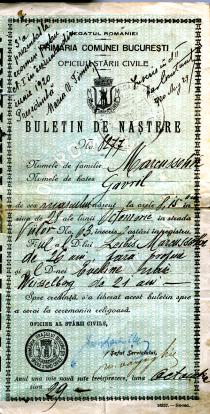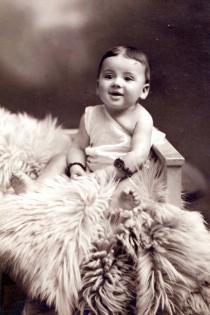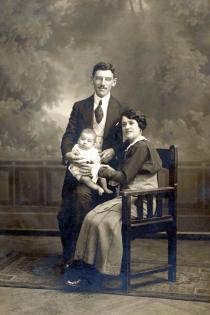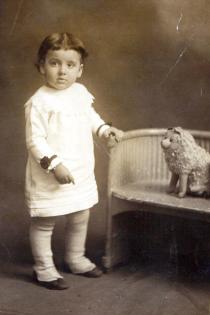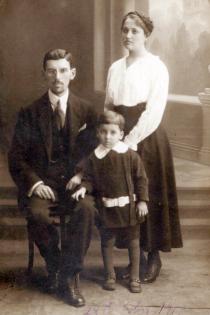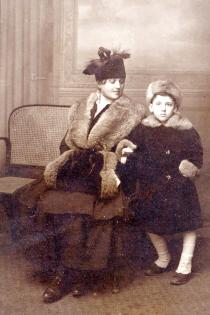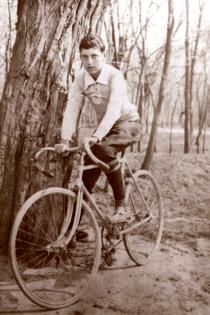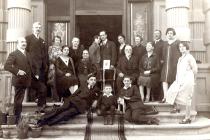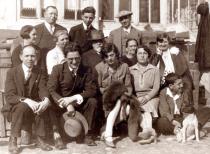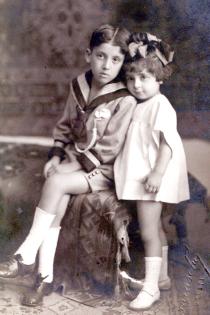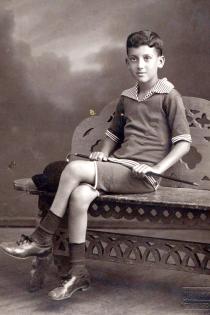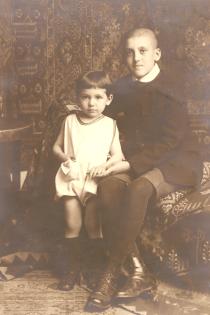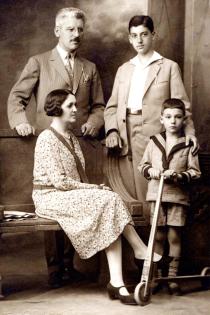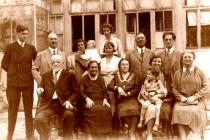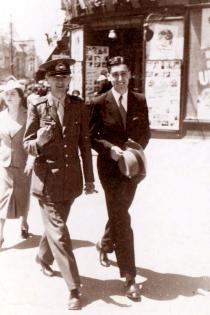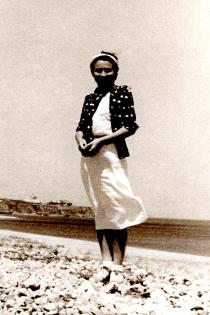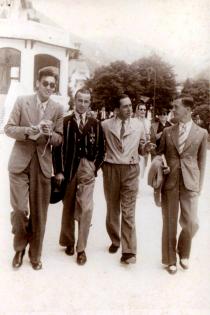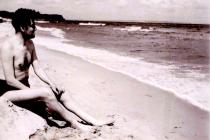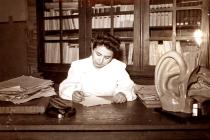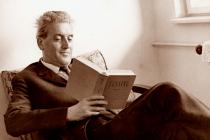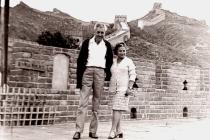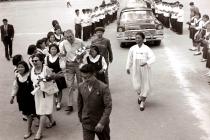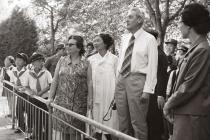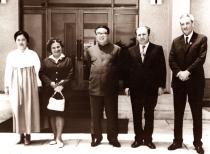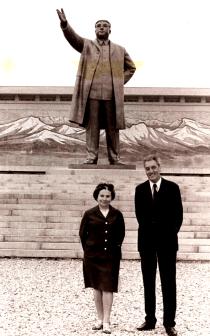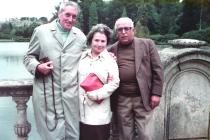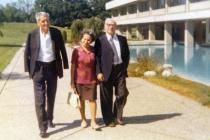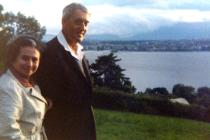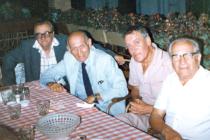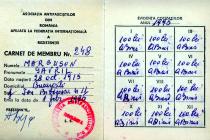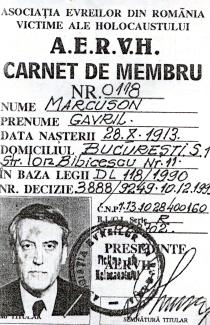This is my membership card no.118 issued by the Association of the Romanian Jews - Victims of the Holocaust on the name Gavril Marcuson, on December 1999.
My name is Gavril Marcuson [the initial name, Marcussohn, was shortened to Marcuson in 1968]. I was born in Bucharest, on 28th October 1913. I graduated from the Faculty of Letters and Philosophy in Bucharest in 1935. I was a researcher at the Communist Party History Institute. I had some books and articles published. I retired while I was working for the Scientific and Encyclopedic Publishing House, in 1973.
I remember the [Legionary] rebellion [of January 1941] very well. On Atena St., I looked from a distance, because we weren't allowed to get any closer, how the synagogue [the Iesua Tova] on that street was burning. The Legionaries had set it on fire and let no one, not even the firemen, to get near and extinguish the fire.
In 1941, when we [Romania] entered the war against the USSR, the first thing that happened to me was that they kicked me out of the army and sent me to forced labor, to the shooting range. My father was too old to get sent to forced labor, and my brother was too young. I remember the first bombings caught me there. The Russians were bombing Bucharest, and we were working under military supervision and couldn't take cover anywhere. We worked with our bare arms or with shovels to build the shooting range, and we got neither food, nor money. We worked like slaves - but the slaves in ancient times were fed at least. We worked from dawn till dusk. In winter, they would have us clear the snow in the streets. I remember I was once with a fellow-worker, a physician by trade, and we saw a German military approaching. He was a simple air force soldier and he began a conversation with me. I spoke German. He told me he was an antifascist, that he was a textile worker in his civilian life, and that he was from Augsburg. I talked to him, but I soon regretted it when I got home - I was scared.
In 1941, when we entered the war against the USSR, the first thing that happened to me was that they kicked me out of the army and sent me to forced labor, to the shooting range. My father was too old to get sent to forced labor, and my brother was too young. I remember the first bombings caught me there. The Russians were bombing Bucharest, and we were working under military supervision and couldn't take cover anywhere. We worked with our bare arms or with shovels to build the shooting range, and we got neither food, nor money. We worked like slaves - but the slaves in ancient times were fed at least. We worked from dawn till dusk. In winter, they would have us clear the snow in the streets. I remember I was once with a fellow-worker, a physician by trade, and we saw a German military approaching. He was a simple air force soldier and he began a conversation with me. I spoke German. He told me he was an antifascist, that he was a textile worker in his civilian life, and that he was from Augsburg. I talked to him, but I soon regretted it when I got home - I was scared. I realize now that the man had been honest, that he was a genuine German antifascist, and I'm sorry I didn't keep in touch with him.
Then we got sent to Moldavia, to Onesti, where we built fortifications. I worked by the concrete mixer day and night. It was hard work, because I was supposed to carry cement sacks weighing 50 kilos on my back, and I couldn't even lift them from the ground. A sturdier fellow-worker used to help me - he put the sacks on my back, then I took them where I had to and emptied them. We were led by a military school cadet, a tyrant who cursed us and persecuted us severely. My father would send me money from home, and so I was able to buy things to eat. The Jews in Onesti sometimes called us for minyans, and invited us to table afterwards. They saw I didn't have a plate, so they gave me one, and a spoon, and they gave me soup, they fed me. The Jews in Onesti were very nice to us, very humane. Onesti was a shtetl, a small town which had relatively many Jews. But they weren't any different from the other inhabitants - they dressed in the contemporary fashion.
Then we got sent to Moldavia, to Onesti, where we built fortifications. I worked by the concrete mixer day and night. It was hard work, because I was supposed to carry cement sacks weighing 50 kilos on my back, and I couldn't even lift them from the ground. A sturdier fellow-worker used to help me - he put the sacks on my back, then I took them where I had to and emptied them. We were led by a military school cadet, a tyrant who cursed us and persecuted us severely. My father would send me money from home, and so I was able to buy things to eat. The Jews in Onesti sometimes called us for minyans, and invited us to table afterwards. They saw I didn't have a plate, so they gave me one, and a spoon, and they gave me soup, they fed me. The Jews in Onesti were very nice to us, very humane. Onesti was a shtetl, a small town which had relatively many Jews. But they weren't any different from the other inhabitants - they dressed in the contemporary fashion.
